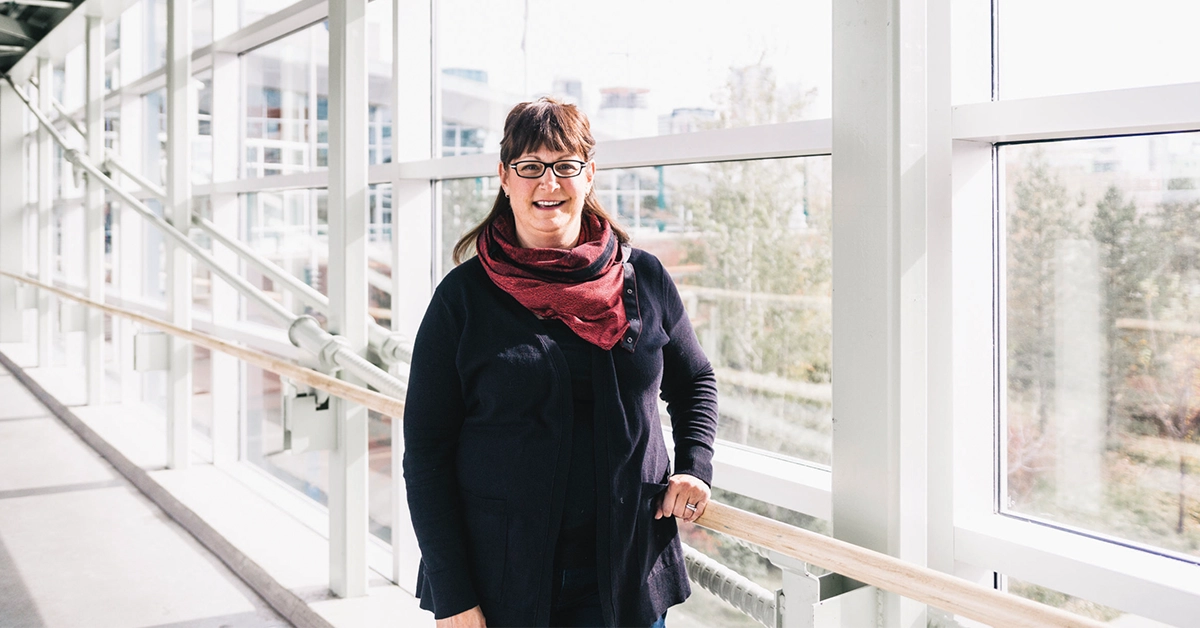A quick glance around a classroom at MacEwan University might a slew of young faces texting or typing on their computers and tablets.
Behind this exterior, however, is a demographic that goes greatly unrecognized: the mature student population.
A mature student is defined by the university’s admission requirements as a student who is 20 years or older and has been out of full-time high school for one year.
In 2009, 42 per cent of first-year students at MacEwan fell within this category, and 10 per cent of those mature students were above the age of 30.
With numbers like these, you are likely to be seated beside a mature student at some point during your university career.
Two such students spoke with us about some of the trials and triumphs of being a mature student on campus.
The decision to return to school at a later time in life certainly isn’t easy, according to Angela Shaske, a mature third-year communications student.
“I’ve always wanted to do it and never had the guts,” she said. “My last major job was in welding and I was happy behind that mask, but I want to write.”
Shaske completed two years in the welding program at NAIT and, 10 years later, chose to enrol at MacEwan, despite having some mixed feelings about her place at the school as a mature student.
“I wasn’t quite in my 40s yet and I felt out of place. I was old!” she said.
These concerns are a widespread theme among mature students, according to Brenda Barrett, a counsellor with MacEwan’s wellness and psychological services department.
“There are personal challenges. The self-doubt, and everyone else seems to be asking all the right questions,” she said. “Even people who have been out of school for just five years can feel so out of place.”
On top of the personal challenges for mature students, they also face an entirely different set of financial challenges. Falling within higher income brackets can affect both the provincial and federal government’s student loan allowance for an individual.
Barrett was able to speak to this based on her years of experience with mature students.
“Most are paying their own way, or going into serious debt and giving up jobs,” she said. “The system has changed. Libraries have changed dramatically in the last five to 10 years. Everything’s online, the technology is really intimidating.”
Despite the adversity they face, mature students certainly have some advantages as well. According to Barrett, life experience is the most prevalent convenience this demographic carries.
She believes that maturity lends itself to asking questions and that mature students tend to be more aggressive in their use of the school’s resources in order to get the help they need.
“They’re more resource-savvy, so they’re not hesitant to ask for help from an instructor or counsellor,” she said.
Lois Zapf, a mature second-year early childhood development student and student ambassador, feels that her years of life experience have helped her to feel more secure in her role as a student at MacEwan.
“(I’m) definitely confident in a lot more things,” she said. “I don’t worry about being popular or how I’m coming across, or whether people are going to like me.”
Although there are a staggering number of mature students present within the student population, there are currently no specific clubs or programs that exist for this group. When asked about the absence of such organizations, Barrett agreed it would be a benefit to mature students.
“I think student-driven clubs would be awesome for mature students so you’re not feeling isolated or alone,” she said.
Enrolling in post-secondary as a mature student can seem like a daunting concept, but the advice for prospective students from others who were once in the same position is unanimous: take the risk.
“Do it. Don’t hesitate,” Shaske said. “If you want to go back to school, don’t let anybody get in your way.”
Zapf shares a similar opinion and didn’t think twice about her advice for a mature student who’s feeling unsure. She reflected on her feelings heading into school, acknowledging that she was concerned about fitting in with the rest of the students.
These fears turned out to be entirely in vain.
“To my surprise, I didn’t (stick out) because of the number of mature students that are here,” she said. “There is nothing to worry about, you are at an advantage.”
While these two mature students shared the same unease at the beginning of their first semester, they also share the same feelings about their time at university thus far.
“People are very welcoming,” Shaske said with a smile. “I can see the finish line, and it makes me sad. I just want to be here all the time. It’s bittersweet.”
Zapf was able to find herself a very specific niche as a student ambassador for the university.
She played a key role in the mature student’s orientation at the beginning of the semester by sharing her experience with a room of nerve-wracked mature students on their first day.
“I felt accepted and a part of what’s going on,” Zapf said. “I’m ex- cited about finishing and making this accomplishment at this time in my life.”
Enrolling in post-secondary as a mature student undoubtedly requires bravery and determination.
But despite the inherent tribulations, one thing remains clear: both the professional and personal benefits of an education are timeless.
Cover photo by Matthew Jacula.





0 Comments